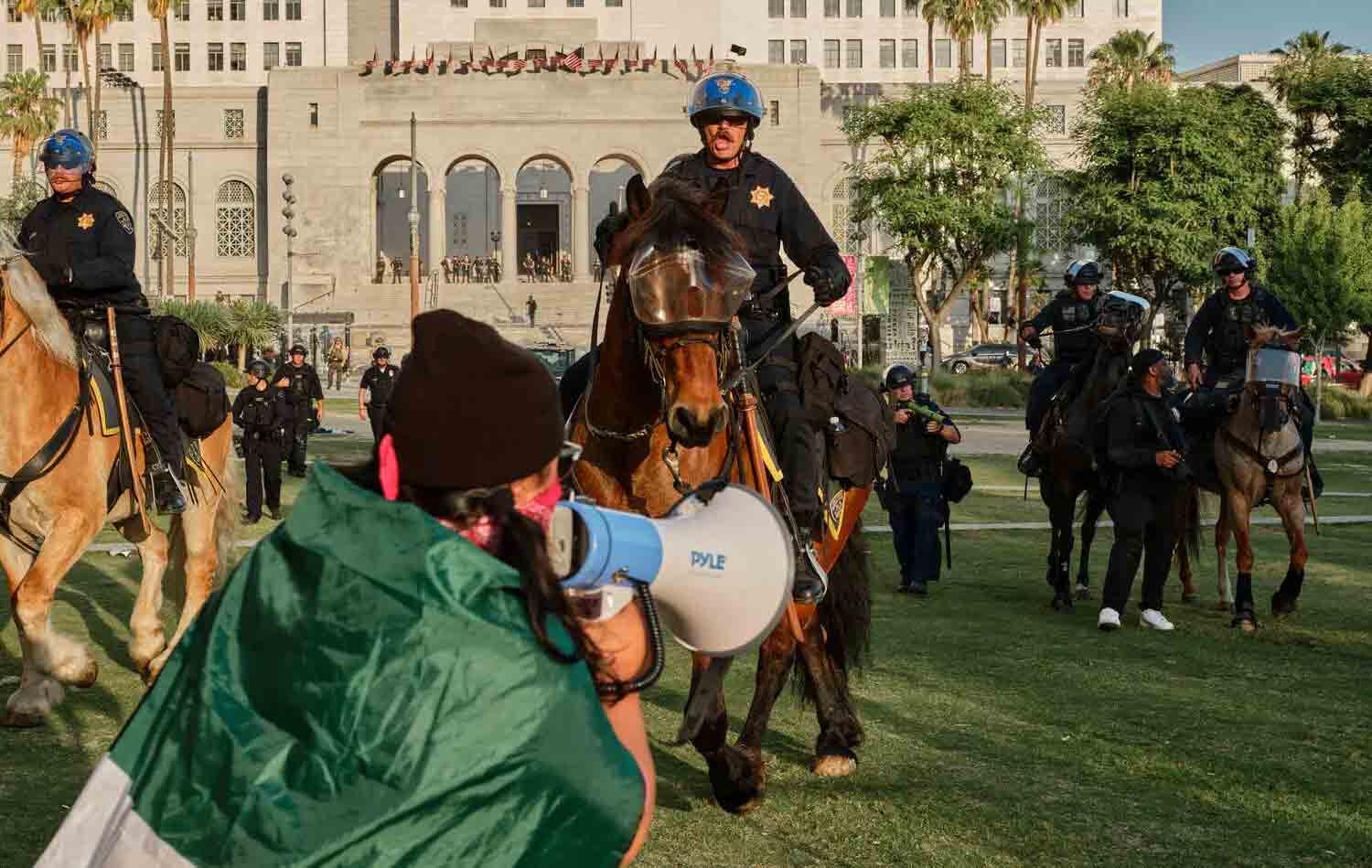A pivotal legal battle is unfolding in California as the state challenges the Trump administration’s deployment of federal troops for immigration enforcement. The case questions whether Marines and National Guard members can be lawfully involved in operations typically reserved for civilian authorities.
At the core of the hearing is California’s demand to restrict military personnel to protecting federal buildings rather than assisting in immigration raids. State officials argue this violates constitutional norms and legal provisions such as the Posse Comitatus Act, which limits military involvement in domestic law enforcement.
Protests have surged across major cities—including Los Angeles, Seattle, Chicago, and New York—since news of the deployments became public. Demonstrators have expressed outrage over what they see as a militarized crackdown on immigrant communities.
In Los Angeles, clashes erupted between law enforcement and demonstrators. Police used flash bangs and foam bullets to disperse crowds in downtown and Koreatown, where activists marched despite curfews.
According to U.S. Northern Command, 700 Marines are stationed at a naval base near Los Angeles, while 2,100 National Guard troops are already deployed. Another 2,000 Guard members are undergoing training for possible mobilization.
Governor Gavin Newsom has been a vocal critic of the administration’s actions. In a widely broadcast speech, he condemned the military’s domestic involvement and emphasized the importance of civil rights. His stance has garnered support from progressives and skepticism from critics who speculate on his national ambitions.
Civil rights leaders have voiced deep concern over the military’s presence in immigrant neighborhoods. Organizations representing Black and Latino communities argue that the move increases fear and suppresses lawful dissent.
The immigration enforcement efforts have disrupted sectors across California. Farms and car washes, known to employ undocumented workers, have been subjected to repeated federal raids. Nonprofit groups report a surge in detentions in both cities and rural communities.
Legal experts believe the outcome of this case could redefine federal authority in using the military for domestic operations. A ruling in favor of California may limit the scope of executive power, while a decision backing the federal government could broaden presidential authority during periods of unrest.
Beyond California, other states have seen varied reactions. In Spokane, Washington, 30 arrests were made following a protest aimed at blocking an ICE vehicle. Cities like Las Vegas and Seattle have also experienced confrontations between demonstrators and police.
The national divide is evident: while Texas officials have welcomed federal assistance, California is leading the charge against it. The legal arguments reflect a broader debate about the role of the military within U.S. borders and the balance between national security and civil liberty.
As the court deliberates, the implications are far-reaching. This decision may shape how future administrations respond to domestic crises and set a precedent on the limits of federal force in civil society.
The nation watches closely as the courtroom becomes the stage for one of the most consequential legal debates on executive power and civil rights in recent memory.
www.yallatv.ae





